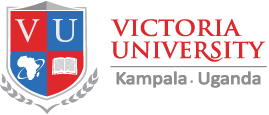Quick Facts
Credential
Bachelor's Degree
Delivery Options:
Both On-Campus and Online - Some of your Classes will be in-person, on campus and some will be done online.
Duration: 3 years
With a typical full-time course load, this programme will take 3 years to complete.
Language of instruction
english
Admission Requirements
Our admission requirements are structured to ensure that we only admit students who are committed to making a positive impact on society.
For direct entry, you need to have a Uganda Certificate of Education (UCE) or its equivalent with credit pass in biology, physics, and chemistry, and at least Two Principal passes at Uganda Advanced Certificate of Education (UACE) or its equivalent obtained from a recognized institution at the same sitting.
If you hold a diploma or its equivalent from a recognized tertiary institution in Health Sciences, Nursing, Clinical Medicine, Veterinary medicine and other allied health courses, you are eligible to apply for our diploma holders' entry program.
For international students, we welcome you to join our programme as long as you have the International school leaving certificate qualifications equivalent to A' level standard. If you don't meet this requirement, you may need to take and pass our Foundation Year of biological sciences or equivalent programme in order to qualify for entry to the BPH degree program. Don't worry; we will guide you through the process.
Applicants whose first language is not English will be required to demonstrate a proficiency in the English language by passing an English proficiency Test conducted by the University.
Admission Requirements for Undergraduate Students (Ugandans)
· UACE result slip
· UCE result slip
· Diploma transcript if applicable
· National ID/passport/ birth certificate
· Two passport photos
Admission fees UGX250,000
Bank: STANBIC BANK
USD Account: 9030020161247
Swift Code: SBICUGKX
What you will Learn
Following successful completion of the BPH programme, the learner is expected to:
Diagnose and investigate community health problems.
Design and manage health education and health promotion programmes.
Design, implement, monitor and evaluate any disease prevention/control programme.
Provide professional preventive health services.
Mobilize and sensitize the general public on national and international policies and strategies for improved health and well-being for all.
Design, conduct, analyze and interpret results of Public Health research in order to initiate evidence-based interventions
Career Opportunities
A bachelor's degree in public health offers a wide range of career opportunities in various sectors related to healthcare, public policy, research, and community well-being. The fact that you completed your degree part-time might also indicate a strong commitment to balancing education with other responsibilities, which can be seen as a valuable trait by potential employers. Here are some career paths you could consider:
Health Educator: Health educators work to inform communities and individuals about healthy lifestyles, disease prevention, and healthcare services. They might develop educational materials, conduct workshops, and create awareness campaigns.
Community Health Worker: Community health workers act as liaisons between the community and healthcare professionals. They provide information about available healthcare services, help individuals access resources, and advocate for community health needs.
Epidemiologist: Epidemiologists study patterns of disease and illness within populations. They gather and analyze data to identify causes of health problems, develop strategies for prevention, and contribute to public health policies.
Health Policy Analyst: Health policy analysts research and evaluate healthcare policies and regulations. They assess the impact of policy changes on public health and work to develop recommendations for improving healthcare systems.
Public Health Researcher: Public health researchers conduct studies and investigations to advance our understanding of various health issues. This can involve data collection, analysis, and interpretation to inform evidence-based interventions.
Healthcare Manager/Administrator: Healthcare managers and administrators oversee the operations of healthcare facilities, ensuring efficient delivery of services and adherence to regulations. A background in public health can be valuable in managing population health and preventive care initiatives.
Nonprofit and NGOs: Many non-governmental organizations (NGOs) and nonprofit organizations work in the public health space, focusing on issues such as global health, infectious diseases, maternal and child health, and more.
Global Health Specialist: With a focus on global health, you could work on projects aimed at improving health outcomes in developing countries, addressing infectious diseases, promoting maternal and child health, and more.
Environmental Health Specialist: Environmental health specialists assess and manage environmental factors that can impact public health, such as air and water quality, sanitation, and occupational health hazards.
Health Communications Specialist: Health communications specialists develop and implement communication strategies to convey health information to the public, healthcare professionals, and policymakers.
Health Data Analyst: As a health data analyst, you could work with large datasets to identify trends, patterns, and correlations in health-related data, helping to inform public health decisions.
Infection Control Practitioner: Infection control practitioners work to prevent the spread of infections in healthcare settings. They develop and implement strategies to minimize the risk of healthcare-associated infections.
Health and Safety Officer: Health and safety officers ensure that workplaces and public spaces adhere to health and safety regulations, helping to prevent accidents, injuries, and health hazards.
Public Health Consultant: With experience and expertise in public health, you could work as a consultant, providing specialized advice to organizations, government agencies, and businesses on public health-related matters.
Health Advocacy: Public health graduates can advocate for policy changes, improved healthcare access, and social determinants of health through roles in advocacy organizations.
Tuition & Fees
The tuition and fee amounts are estimates based on current academic year's rates. For financial planning purposes, please use these totals as an approximate estimate of your costs. Actual fees may vary by term and enrolment activities.
Download
